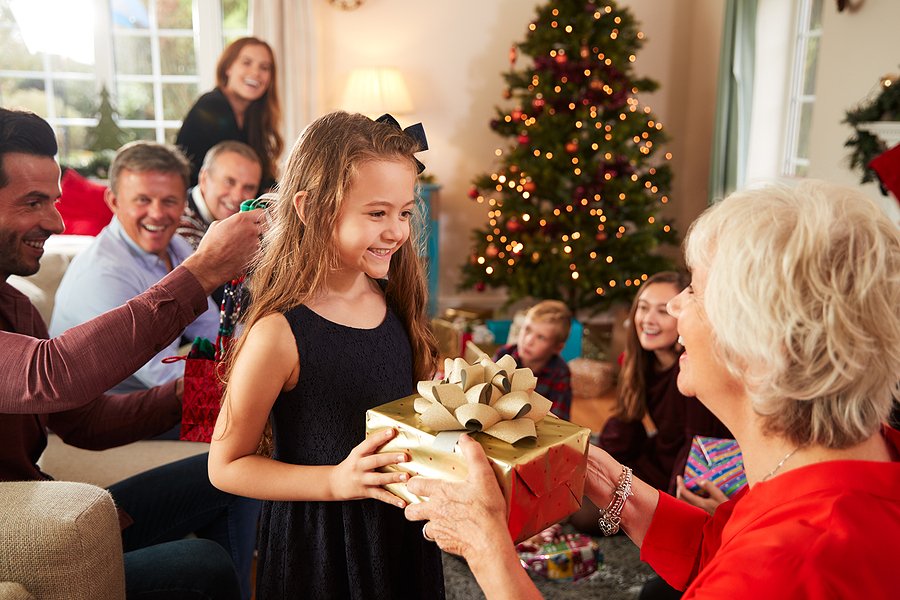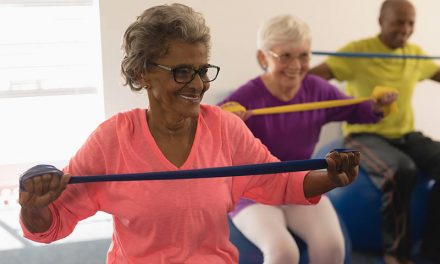Teaching kids to care
So you’ve decided on a big family get together this Christmas to make up for the disappointment of last year. You’ll fetch mom from the old age home, organise an Uber for the in laws, and everyone will have the most wonderful time together.
Or will they?
If your kids and your parents haven’t seen each other in a while, they may struggle to connect. Granny simply has no idea what interests a 13-year old boy nowadays – while your teen may be so used to texting peers via WhatsApp that actually having a conversation with Granny seems not only ‘uncool’ but impossible. What would they talk about?
Older people can also seem frightening to youngsters. Elders who are hard of hearing may ignore comments made by a child, simply because they didn’t hear them. Or they may irritably demand that children ‘speak up’. Bushy eyebrows and deep frown lines can create a fierce expression that children interpret as dislike or bad temper.
Grandparents, on the other hand, may fear seeming old-fashioned. Especially if they don’t know anything about the latest gadgets used by their grandchildren. They may feel they have little to offer and that anything they have to say is no longer relevant. In fact, having a grandchild explain how their gadget works can be a great opportunity for bonding. Elders can learn something new, and kids can feel important.
Put the blame on the breakdown of the extended family.
Not so long ago, extended families often lived together in the same home or very close to each other. Everyone helped out when it came to caring for young, old and sick family members. Multi-generational families are still common in some cultures, e.g. Indian and African. But the general trend is towards nuclear families, with older adults preferring to live independently. As a result, children are less likely to know their grandparents well or visit them frequently.
Bridging the gap
It’s important to teach your children to accept people of all ages, capabilities and limitations, and to treat everyone with respect. The more you plan activities that include both children and grandparents, the more likely your kids are to form bonds with their elders. Shared activities and experiences create memories, and also provide opportunities to teach children that older adults may need extra care and consideration.
Kids who’ve developed close emotional bonds with grandparents or other elderly relatives are more understanding and patient with people who have disabilities. Such children know that they have to speak a little louder to grandpa, or that he may need help getting up from his chair, or climbing a staircase.
Get kids and grandparents involved in activities
Nothing gets the generations together like a common purpose. At Christmas time, there is usually food to be prepared. Instead of chasing everyone out of the kitchen, give kids and elders tasks that they can do together, such as peeling potatoes or mixing dough. The conversation should soon start to flow naturally.
Playing board or card games or charades is also a great ice-breaker. Kids can teach elders how to play new games, or learn some of the games from days gone by. Jigsaw puzzles are also great fun to do together, with everyone searching for difficult to fit pieces.
Many children, even older ones, love being read to, and this is an enjoyable activity for most elders. Elders, too, enjoy having older children read to them, especially if they are feeling tired or their eyesight is failing. Discussing the story, and why the characters in the book behave the way they do, or why certain things happen, can open the door to interesting conversations.
Storytelling
Older people who suffer from forgetfulness may struggle to remember what happened yesterday. But they often have crystal clear recollections of funny things their own children said or did. These stories are a hot favourite with kids, offering fascinating glimpses into what their parents were like as children. Children may also be interested in what the world was like before the internet and cellphones, video calling and YouTube.
Seniors need to be ready to listen as well as talk; grandchildren can offer a similarly fascinating insight into the world they live in, which is very different from what older adults experienced.
Some things never change
Hobbies like building model aeroplanes and dressing paper dolls haven’t changed much in the last 50 years. Neither have sports like tennis, soccer, cricket and ballet. Encourage children to discuss their hobbies with their grandparents, demonstrate their ballet steps or skills with a bat or ball. This can lead to lively discussions about shared passions. Watching a football match on TV together, or building a model helps older adults form strong bonds with their grandchildren.
Why is all this important?
Countless studies have proved that inter-generational bonding has a positive impact on both children and elders. Apart from promoting understanding and sensitivity to others’ needs and abilities, spending time together has physical, mental and emotional benefits.
For seniors, interaction with children helps alleviate symptoms of loneliness and isolation. It may also encourage physical activity by joining in games with the children. Seeing the world through the eyes of a child can rekindle a sense of wonder in nature. There is also a renewed sense of self-worth, as seniors enjoy the opportunity to share their knowledge, and serve as role models.
Because grandparents often have more time on their hands than busy parents, children benefit from extra attention and opportunities to learn. Those who enjoy close bonds with older adults have higher developmental scores, and display greater empathy and more advanced social skills.
What if your kids don’t have grandparents, or they live too far away?
You can still teach your children to care for older adults. Children learn kindness and caring by watching how you treat others. Encourage them to be respectful, empathetic and helpful by your own actions.
If you see an elderly person struggling to carry a heavy bag of groceries, ask if you can help, and encourage your child to join in. Consider volunteering to visit a lonely old person at your local old age home (check first to see if Covid-19 restrictions are in place), and take your child along with you. Suggest baking or buying a treat for the elder and letting your child be the one to hand over the gift. Even a friendly, “Hi,” when you see your elderly neighbour out walking their dog or watering their garden is an act of caring.
Every year we are humbled by the kindness of caring of so many people, young and old, who pop into our Tafta homes with Christmas gifts of toiletries, sweets, biscuits and other treats. Others contribute generously to our Festive lunch appeal. If you are among our generous supporters, be sure your children know about what you are doing and why. Let them see how important it is to reach out and bring a little joy into the lives of lonely elders.






 Affordable accommodation for life
Affordable accommodation for life Stay safe online – learn to recognise these common scams
Stay safe online – learn to recognise these common scams Community support for Mandela Day was inspiring
Community support for Mandela Day was inspiring Tafta proud to be placed in the Top 3 for the KZN Top Brand Awards
Tafta proud to be placed in the Top 3 for the KZN Top Brand Awards Puzzling it out – brain-boosting fun for older adults
Puzzling it out – brain-boosting fun for older adults Tafta Council member awarded MBE
Tafta Council member awarded MBE Concern and confusion over SASSA Old Age Grant payments
Concern and confusion over SASSA Old Age Grant payments Communication through the ages – we’ve come a long way!
Communication through the ages – we’ve come a long way! Vote for us in the KZN Top Brand Award
Vote for us in the KZN Top Brand Award Men’s health – signs older men shouldn’t ignore
Men’s health – signs older men shouldn’t ignore